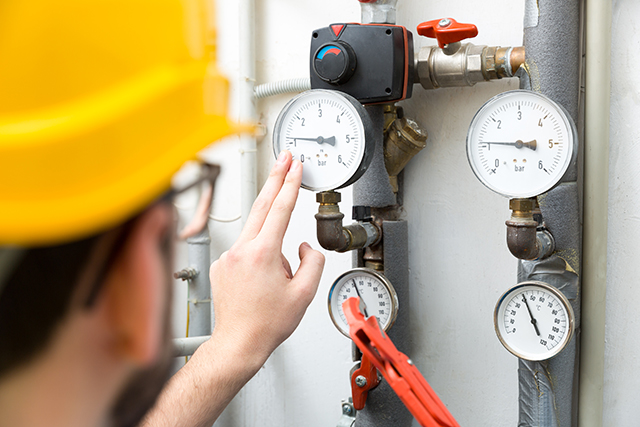As temperatures dip and the weather outside gets a little more frightful, your home should be toasty and warm. But ensuring the comfort of a well-heated home on the most bitterly cold winter days starts with keeping your heating equipment properly maintained. Snuggle more and shiver less this winter with these tips.
Staying on Top of Maintenance
Don’t wait until something breaks and your home heating system requires emergency repairs. When the weather is cold, you won’t want to go a single day without heat. By regularly maintaining your system, you can save money on costly repairs and prolong the life of your home heating system. Annual maintenance, even when you don’t think anything is wrong, will ensure that you don’t have any surprise problems when you need your heating system most.
Petro Home Services can provide comprehensive, full-service annual inspections from highly-trained heating specialists that can save you money, give you peace of mind and keep your home comfortable.
Central Heating System Maintenance
A central heating system is a fine-tuned machine, and all of the components need to work together to make sure that your heating is safe, warm and cost-effecient. When a home heating technician comes to inspect your heating system, they will calibrate it to make sure you get proper delivery of heat to every part of your home. Here are some of the components that they should be inspecting.
Filter Inspection and Replacement
In central heating systems, warm air moves through filters to keep the air clean. If these filters get clogged, dust, dirt and other contaminants can make their way into the air that circulates through your home – the air that you and your family breathe all day. The warm, dirty air will move through the ductwork, room by room. This contaminated air can be hazardous to your health and should be dealt with immediately. Clogged filters also cause your heating system to work harder and can lead to it breaking down.
When a home heating technician inspects your system, they will inspect the air filters to make sure that they are clean and safe. If they’re clogged or dirty, they will often simply be replaced – a cheap, easy fix that will help you breathe easy and keep your system running efficiently.
Thermostat Inspection and Repair
The thermostat – that thing your kids are always messing with! The thermostat is one of the most important parts of a home heating system, and the part that you interact with the most. A properly-functioning thermostat will signal your home heating system to produce the desired temperature, and it also measures the current temperature in your home. If your thermostat is malfunctioning, it can report the wrong temperature to your home heating system, or signal it to produce the wrong temperature in your home. It can be frustrating to users who simply want to set the thermostat to their desired temperature.
Many times you can fix the problem on your own, if you have a programmable thermostat, by simply changing the battery. Other times you will need to call in a trained professional to take a look. A trained home heating specialist can diagnose if there are any problems with your thermostat, and either repair or replace it.

Boiler and Furnace Inspection and Repair
What’s the difference between boiler heating and furnace heating?
A boiler uses hot water or steam to heat your home. The heated water is pumped through the house to heat radiant flooring systems or radiators. Boiler systems can run on natural gas, propane, electricity, oil or even wood pellets.
A furnace uses air rather than water. It can run on natural gas, propane, oil or electricity to heat air and push it through your home’s ductwork. Furnace heating can sometimes produce more dryness than boiler heating, due to the blowing air. Boiler heating is a more radiant heat, so there’s no hot air blowing on you.
These two types of systems require two different types of maintenance. Furnaces require an annual inspection, and your air filters will also need to be changed out on a regular basis. If you live with pets or in an area with a lot of dust in the air, you should change them more often to maintain their cleanliness. Boilers require an annual inspection and tune-up by a professional home heating technician. Remember to keep the area around your furnace or boiler clear and clean.
When your boiler or furnace is inspected, a home heating technician can repair any issues or replace it if necessary.
Ventilation and Radiation
If you have a furnace, you have a heating ventilation system. If you have a boiler, you have a heating radiation system. When these systems are functioning properly, they will deliver consistent warmth throughout your home.
Over time, air trapped in your boiler, pipes or radiator can block the flow of heated water – it’s also susceptible to rust from dirt and debris in the system. When this happens, the system draws more fuel to compensate and reach the correct temperature and it can get expensive.
If you have a furnace, clogged ventilation systems can cause a similar problem. Warm air gets trapped in the heating system, and more fuel has to be used to overcompensate. A home heating specialist will inspect the points at which air or heat flows or radiates into your home.
Duct Inspection and Replacement
In furnace-based central heating systems, air ducts deliver warm air throughout the house. If the insulation in your duct systems breaks down or tears, it can cause heat to release in places where it’s not supposed to be. Since the air isn’t heating your home like it should be, the system will again draw extra fuel to hit your desired temperature. It’s like money leaking out of your wallet and into your walls. A heating system technician will inspect your ductwork and insulation to ensure that all the warm air goes where it needs to be going.
Fuel Line and Fuel Tank
Fuel lines, which transport fuel to the burner, must be tightly-sealed to be safe and operate efficiently. A home heating specialist should inspect the fuel line for rust, leaks and consistent assembly. They will also inspect the fuel tank. If there are any issues with your fuel line, a total replacement of the piping is the safest option.
AAA members who sign up as a new customer with Petro Home Services can receive special offers including $200 off any new heating or AC system. Learn more.
How often does your home heating system receive maintenance? Let us know in the comments below!
2 Thoughts on “Keeping Your Home Heating System Maintained”
Leave A Comment
Comments are subject to moderation and may or may not be published at the editor’s discretion. Only comments that are relevant to the article and add value to the Your AAA community will be considered. Comments may be edited for clarity and length.

















Mike O’Malley, I would have to agree with your heating contractor that 55 degrees F is the safest temperature for a vacant home during the winter months. In addition to frozen pipes, condensation can be a damaging factor in homes that are too cold. Even on a freezing day, the sun can bring heat into a cold home causing humidity, which causes condensation that gets trapped on windows and exterior walls causing damage.
Sarah, thank you for this very informative heating maintenance article. I know maintenance of my heating goes well beyond just replacing the filter, so this was an extremely helpful read.
Having a second home, I am curious as to what is the best temperature to set on the thermostat when the house will not be occupied. Obviously the house must be kept above freezing so piping will not freeze and break, but how much above freezing should the thermostat be set? If the temperature is set too low more energy will be needed to bring the temperature up than will be needed to maintain a constant temperature. A heating contractor has told me that he would not recommend a temperature below 55 degrees F. What do the other experts say?